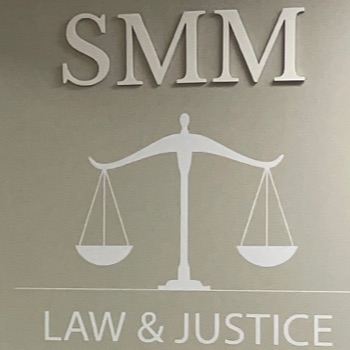An Estate Plan is a way to legally protect your assets during your lifetime and to insure that your goals and objectives are met and your intentions followed with regard to the disposition of your assets after your death. Estate plans typically include a Durable Power of Attorney, a Health Care Proxy and a Will. In certain cases more specialized planning is necessary. This may include Trust or other documents focused on specific client needs for tax planning, long term care planning, or planning for minor or special needs beneficiaries. The importance of obtaining competent legal advice for your own personal situation when establishing a personal estate plan cannot be overstated.

Probate Administration encompasses all of the steps involved in carrying out the duties of the Personal Representative (PR) (also referred to as Executor) under the terms of the decedent’s Will. Many individuals choose a spouse, child, other family member or friend, to serve as their Personal Representative under their Will. However, many do not realize the work and complexity involved. The PR must observe strict rules in carrying out their duties and protecting the Estate assets. Obtaining the representation and guidance of an attorney experienced in probate practice is invaluable to guide the PR in carrying out their very important tasks and in avoiding costly mistakes. Assistance of suitable professionals, such as appraisers, accountants, real estate brokers, etc. can also make the job of the PR more manageable.
Trust administration extends over the life of the Trust as long as the Trust holds title to Trust assets, and may go on for many years to manage and maintain the Trust property. The Trustee has Fiduciary obligations to manage and protect the Trust assets, report to the beneficiaries, properly invest the Trust assets, and prepare necessary tax returns, among other things. Representation by competent legal counsel will help the Trustee fulfill their legal duties and obligations to the beneficiaries in compliance with Trust law. This can help avoid potential liability to the Trustee and minimize the risk of unnecessary conflict with the beneficiaries.

Elder law is the area of legal practice that specializes in issues that affect the elderly, ranging from estate planning to long term care and Medicaid planning and asset protection. Elder law may also involve issues related to financial exploitation or elder abuse, among other things. See practice areas on our website under long term care, Medicaid planning and asset protection for further description.

Long term care planning may involve developing plans and exploring options to address living arrangements to meet an elder’s specific needs and caregiver arrangements, including independent living, home care, community programs, assisted living arrangements, living with a child or other relative, and nursing home placement. It also includes financial considerations for funding such planning.
Medicaid planning involves structuring a plan that meets the client’s needs and positions assets for Medicaid eligibility. This also includes the preparation of Medicaid (MassHealth) applications in order to obtain approval to pay the costs of long term skilled nursing care or community MassHealth programs. Proper Medicaid planning can save clients and their families thousands of dollars in private pay expenses for nursing home costs that could otherwise impoverish a spouse that continues to live in the community while one spouse is in the nursing home. Medicaid applications prepared by non-lawyers often result in costly mistakes causing denial of eligibility for an individual who, with proper planning and legal representation in the preparation of their Medicaid application, could have been deemed eligible.
Failure to obtain a review of a Medicaid application by qualified elder law counsel before applying for benefits can be a very costly mistake. Benefits that are rightfully due to an applicant can be delayed or denied because of the complicated applications. Sometimes there is a lack of understanding of the necessary documentation, or a misinterpretation of a question which may result in an applicant’s incorrect response to the questions, or a poorly timed application can be fatal to eligibility. Preparation and/or review of a Medicaid application by competent legal counsel knowledgeable in Medicaid law and acting solely in the applicant’s interest is strongly recommended. It is very important that the application is correct, complete, has the required documentation, is timely filed, and in the client’s best interest.

As part of estate or long term care planning, options for asset protection should be explored and considered with advice of counsel. Homestead protection on an individual’s or couple’s personal residence can protect up to $500,000 in equity in the home. For individuals over age sixty-two (62), a couple can protect up to $1 Million in home equity with Homestead protection.
Planning may involve preserving assets for disabled persons or minor children or for a community spouse when one spouse is institutionalized in a long term care setting or when long term care is likely imminent for a spouse or other family member. Trusts can provide asset protection from certain liabilities or from estate tax exposure or other risks. Holding real estate investments in separate Limited Liability Corporation (LLC) ownership may provide liability protection for other separately owned assets.

Special needs planning with counsel experienced in disability law is critical in order to preserve assets and benefits for a disabled person. It is critically important that estate plans focus on the needs of disabled and special needs beneficiaries. Proper planning must be done so as not to render the disabled individual ineligible for government benefit programs, for which they are eligible and entitled. These benefit programs are necessary for the disabled person in order for them to meet their expenses of daily living and support them financially. Properly drafted Special Needs Trusts can preserve funds for the disabled person’s benefit, without risking ineligibility for Government benefits for their support, housing, food, and medical care, among other things.
Court petitions may be required for appointment of Guardians and/or Conservators for adults with special needs.

Sometimes Wills are challenged in Court. Challenges can be based on claims of a poorly drafted or improperly executed Will or claims that the testator may have been incompetent or unduly influenced. Sometimes Wills are challenged without any legal basis simply because an heir is disgruntled.
Trusts are sometimes challenged based on claims that the Trustee is acting in breach of their fiduciary duties and obligations, or to obtain a Court interpretation of Trust language.
Wills and Trust cases are filed in the Probate Court in the County where the deceased resided at time of death, or sometimes where a Trust document may direct. Retaining counsel skilled in litigation practice can be critical to a successful outcome.

Estate tax planning can provide substantial estate tax savings on larger estates when done properly and established in a timely manner. Massachusetts currently imposes estate tax on estates valued at over $1 Million as of the date of death of the deceased.
Many people don’t realize that certain planning opportunities are available to couples ONLY IF established while both spouses are living. Furthermore, many people don’t realize that assets such as life insurance proceeds, which are not available to them during their lifetime, are included in the value of their estate upon their death for estate tax purposes. Others may not realize the increased value of their home, which contributes further to their potential estate tax exposure.
Often estate tax planning can minimize or avoid estate tax exposure with further planning, if implemented in a timely manner after death. Post-death tax planning may minimize or avoid estate tax for those who have not otherwise completed tax planning during their lifetime or whose estate may receive additional estate tax advantage after death.
Each individual’s situation is different. Obtaining competent, experienced legal advice and estate tax planning, both before and after death, can often result in significant Estate tax savings.

Often probate cases involve the sale of the decedent’s home or other real estate. In some cases this may involve special filings with the Probate Court to obtain a license to sell real estate if the Will does not provide for a power to sell the real estate by the PR or in cases where there is no Will.
In addition we provide representation to Sellers in real estate transactions.
